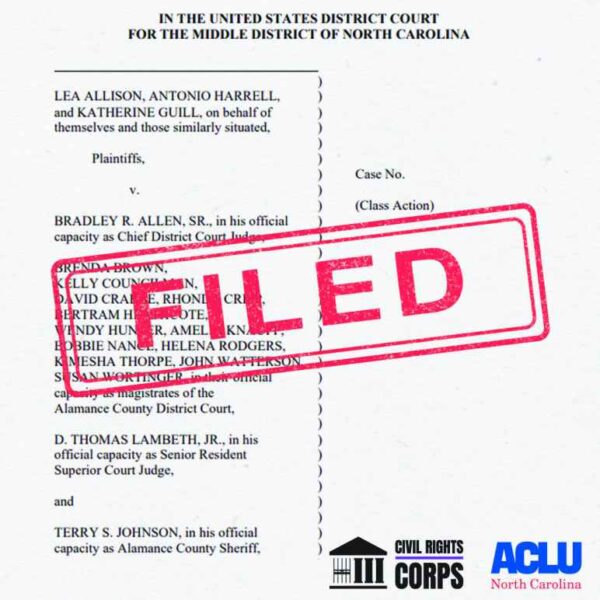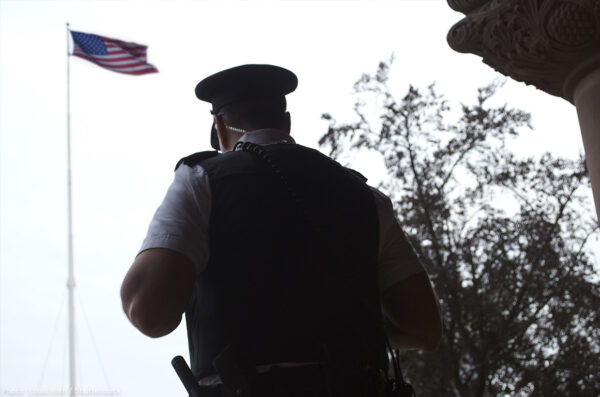Criminal Law Reform
Featured
Arizona
Oct 2023

Criminal Law Reform
Racial Justice
Fund for Empowerment v. Phoenix, City of
Fund for Empowerment is a challenge to the City of PhoenixÔÇÖs practice of conducting sweeps of encampments without notice, issuing citations to unsheltered people for camping and sleeping on public property when they have no place else to go, and confiscating and destroying their property without notice or process.
U.S. Supreme Court
Sep 2023

Criminal Law Reform
McElrath v. Georgia
Does the Double Jeopardy Clause bar an appellate court from reviewing and setting aside a juryÔÇÖs verdicts of acquittal on the ground that the verdict is inconsistent with the juryÔÇÖs verdict on other charges?
U.S. Supreme Court
Jun 2023

Criminal Law Reform
Pulsifer v. United States
This case involves the interpretation of a federal law that allows defendants to avoid mandatory minimum sentences for certain nonviolent drug crimes, allowing judges to impose sentences tailored to their individual circumstances.
Texas
Jul 2021

Criminal Law Reform
Prisoners' Rights
Sanchez et al v. Dallas County Sheriff et al
Decarceration has always been an emergency, a life and death proposition, but COVID-19 makes this effort intensely urgent. The └¤░─├┼┐¬¢▒¢ß╣¹ has been working with our partners to litigate for the rights of those who are incarcerated and cannot protect themselves because of the policies of the institutions in which they are jailed.
All Cases
133 Criminal Law Reform Cases

North Carolina
Nov 2019
Criminal Law Reform
Smart Justice
Allison, et al. v. Allen, et al.
Explore case
North Carolina
Nov 2019

Criminal Law Reform
Smart Justice
Allison, et al. v. Allen, et al.

California
Oct 2019
Criminal Law Reform
Cross v. SFPD
Our Constitution promises all people, regardless of their race, equal protection under the laws. Accordingly, courts have long recognized that the Fourteenth AmendmentÔÇÖs Equal Protection Clause prohibits selective enforcement of criminal laws based on race. Yet law enforcement officers of the City of San Francisco have repeatedly violated that clause, singling out Black people for enforcement.
Explore case
California
Oct 2019

Criminal Law Reform
Cross v. SFPD
Our Constitution promises all people, regardless of their race, equal protection under the laws. Accordingly, courts have long recognized that the Fourteenth AmendmentÔÇÖs Equal Protection Clause prohibits selective enforcement of criminal laws based on race. Yet law enforcement officers of the City of San Francisco have repeatedly violated that clause, singling out Black people for enforcement.

Mississippi
Oct 2019
Criminal Law Reform
Brown v. Madison County
The └¤░─├┼┐¬¢▒¢ß╣¹ of Mississippi, the └¤░─├┼┐¬¢▒¢ß╣¹, and the law firm Simpson Thacher & Bartlett LLP filed a federal lawsuit against the Madison County SheriffÔÇÖs Department to challenge its decades-old policing practices that employ unconstitutional, racially-motivated tactics that target the Black community.
Explore case
Mississippi
Oct 2019

Criminal Law Reform
Brown v. Madison County
The └¤░─├┼┐¬¢▒¢ß╣¹ of Mississippi, the └¤░─├┼┐¬¢▒¢ß╣¹, and the law firm Simpson Thacher & Bartlett LLP filed a federal lawsuit against the Madison County SheriffÔÇÖs Department to challenge its decades-old policing practices that employ unconstitutional, racially-motivated tactics that target the Black community.

South Carolina
Oct 2019
Criminal Law Reform
Smart Justice
Bairefoot v. City of Beaufort et al
In South CarolinaÔÇÖs municipal courts today, defendants are prosecuted, convicted, and jailed without ever having a lawyer appointed to their case or even being advised of their right to counsel. Hundreds of these defendants who were deprived of counselÔÇöincluding Tina Bairefoot, DaeÔÇÖQuandrea Nelson, and Nathan FoxÔÇöhave been and are incarcerated in local jails and state prisons every year. Cities and towns can decide whether they have municipal courtsÔÇöthey are optionalÔÇöbut if they decide to have them they must follow the Constitution, which includes the right to counsel.
Explore case
South Carolina
Oct 2019

Criminal Law Reform
Smart Justice
Bairefoot v. City of Beaufort et al
In South CarolinaÔÇÖs municipal courts today, defendants are prosecuted, convicted, and jailed without ever having a lawyer appointed to their case or even being advised of their right to counsel. Hundreds of these defendants who were deprived of counselÔÇöincluding Tina Bairefoot, DaeÔÇÖQuandrea Nelson, and Nathan FoxÔÇöhave been and are incarcerated in local jails and state prisons every year. Cities and towns can decide whether they have municipal courtsÔÇöthey are optionalÔÇöbut if they decide to have them they must follow the Constitution, which includes the right to counsel.

U.S. Supreme Court
Oct 2019
Criminal Law Reform
Torres v. Madrid
Whether the Fourth Amendment applies to a police officer's intentional use of physical force against a fleeing person, if that use of force does not succeed in terminating her movement.
Explore case
U.S. Supreme Court
Oct 2019

Criminal Law Reform
Torres v. Madrid
Whether the Fourth Amendment applies to a police officer's intentional use of physical force against a fleeing person, if that use of force does not succeed in terminating her movement.
